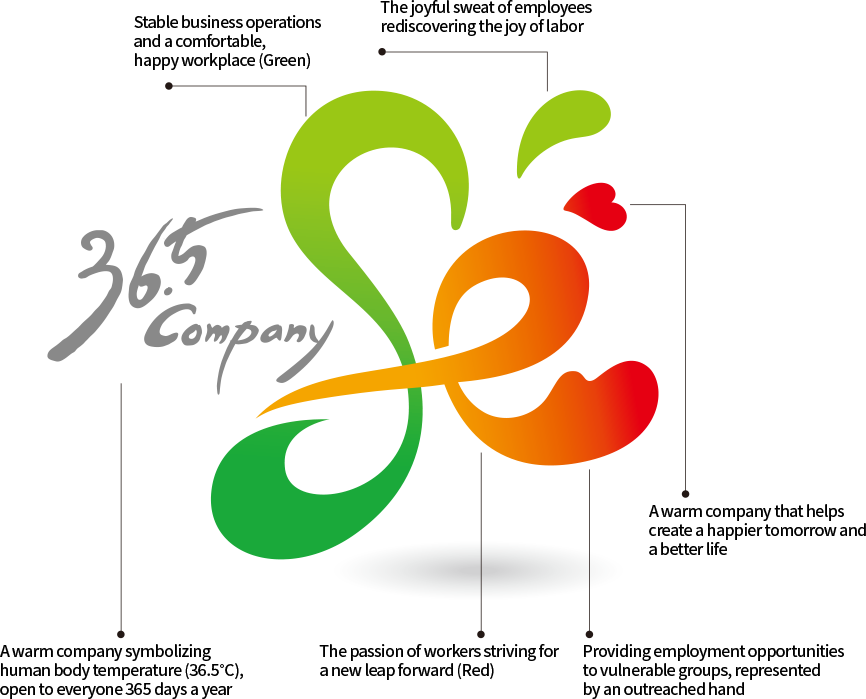Social Value Management
Social Enterprise
What is a Social Enterprise?
- A Social Enterprise is a Somewhere between a for-profit and a nonprofit, company (organization) that conducts business activities such as the production and sale of goods and services while prioritizing social purposes.
- The “Social Enterprise Development Act” defines a social enterprise as an organization certified by the Minister of Employment and Labor as a company that engages in business activities such as production and sale of goods and services while pursuing social purposes such as improving the quality of life of local residents by providing social services or jobs to vulnerable people.
- Unlike for-profit businesses that seek to make a profit for their shareholders or owners, social enterprises are different in that they pursue a social purpose as the primary purpose of their organization, such as providing social services and creating jobs for vulnerable populations.


Background
- In the short period following the Foreign exchange crisis, the number of government-funded jobs such as public works and self-support expanded, but controversy has continued to arise over the effectiveness of government-funded jobs as they do not lead to stable employment.
- In the 2000s, discussions on the introduction of the European social enterprise system as an alternative to the structuring of unemployment growth and the increase in demand for social services began in earnest, and discussions on the introduction of social enterprises as a model for creating stable jobs and providing high-quality social services using third centers such as non-profit corporations and organizations were taking shape.
Significance
- Fostering social enterprises for sustainable economy and social inclusion
- Providing sustainable jobs
Integrate vulnerable populations into the labor market and provide them with good, rewarding jobs

- Community activation
Developing local economies by uniting communities to scale social investment

- Expand social services
Increasing Demand for Utilities, Transforming utilities

- Spreading ethical markets
Corporate Social Responsibility and Ethical Business Practices, Creating a culture of good consumption

type
| Employment-provided | Your organization's primary purpose is to provide jobs to underserved populations |
|---|---|
| Social service delivery | Your organization's primary purpose is to provide social services to vulnerable populations |
| Community Contributed | Your organization's primary purpose is to serve the community |
| Mixed | Organization's primary purpose is a mix of providing jobs and social services to vulnerable populations |
| Other (creative/innovative) | It is difficult to determine whether the social purpose is realized based on the requirements. |
Authentication requirements
| ①Organization type | The company must have an organizational form prescribed by presidential decree, such as a corporation or union under the Civil Code, a company under the Commercial Code, a corporation established under a special law, or a non-profit private organization. | [Social Enterprise Promotion Act] Article 8, Paragraph 1, Article 1, Article 8 of the Enforcement Decree of the Act |
|---|---|---|
| ②Hire paid workers | The company must hire paid workers to engage in business activities, such as the production and sale of goods and services. | [Social Enterprise Promotion Act] Article 8 (1) (2) |
| ③Realizing your social purpose | The organization should have its primary purpose as the realization of a social purpose, such as improving the quality of life of local residents by providing social services or jobs to vulnerable people or contributing to the community. | [Social Enterprise Promotion Act] Article 8, Paragraph 1, Item 3, Article 9 of the Enforcement Decree of the Act |
| ④Stakeholder decision-making structures | The company must have a decision-making structure that includes stakeholders such as service recipients and workers | [Social Enterprise Promotion Act] Article 8, Paragraph 1, Article 4 |
| ⑤Income from sales activities | Revenue from business activities must be at least 50% of labor costs | [Social Enterprise Promotion Act] Article 8, Paragraph 1, Item 5, Article 10 of the Enforcement Decree of the Act |
| ⑥Essentials of bylaws | The company must have articles of incorporation or bylaws, etc. that list matters in accordance with Article 9 of the Social Enterprise Promotion Act | [Social Enterprise Promotion Act] Article 8, Paragraph 1, Item 6, Article 9, Paragraph 1 |
| ⑦Using profits for social causes | If there are distributable profits generated for each fiscal year, the company must use at least two-thirds of the profits for social purposes (if you are a commercial company or partnership) | [Social Enterprise Promotion Act] Article 8, Paragraph 1, Item 7 |
Certified social enterprise logo
- The logo, which represents a social enterprise that works together to create profits and happiness, visually expresses the bright image of the company by expressing the initials 'S' and 'E' of social enterprise in a soft and energetic curve.
- The outstretched hand represents a beautiful social enterprise that gives vulnerable people a chance to live a happy life, while the graphic above the S represents the happy sweat drops of employees who have rediscovered the joy of hard work, and the heart represents a heartwarming enterprise that helps people live a better life by creating a happy tomorrow.


